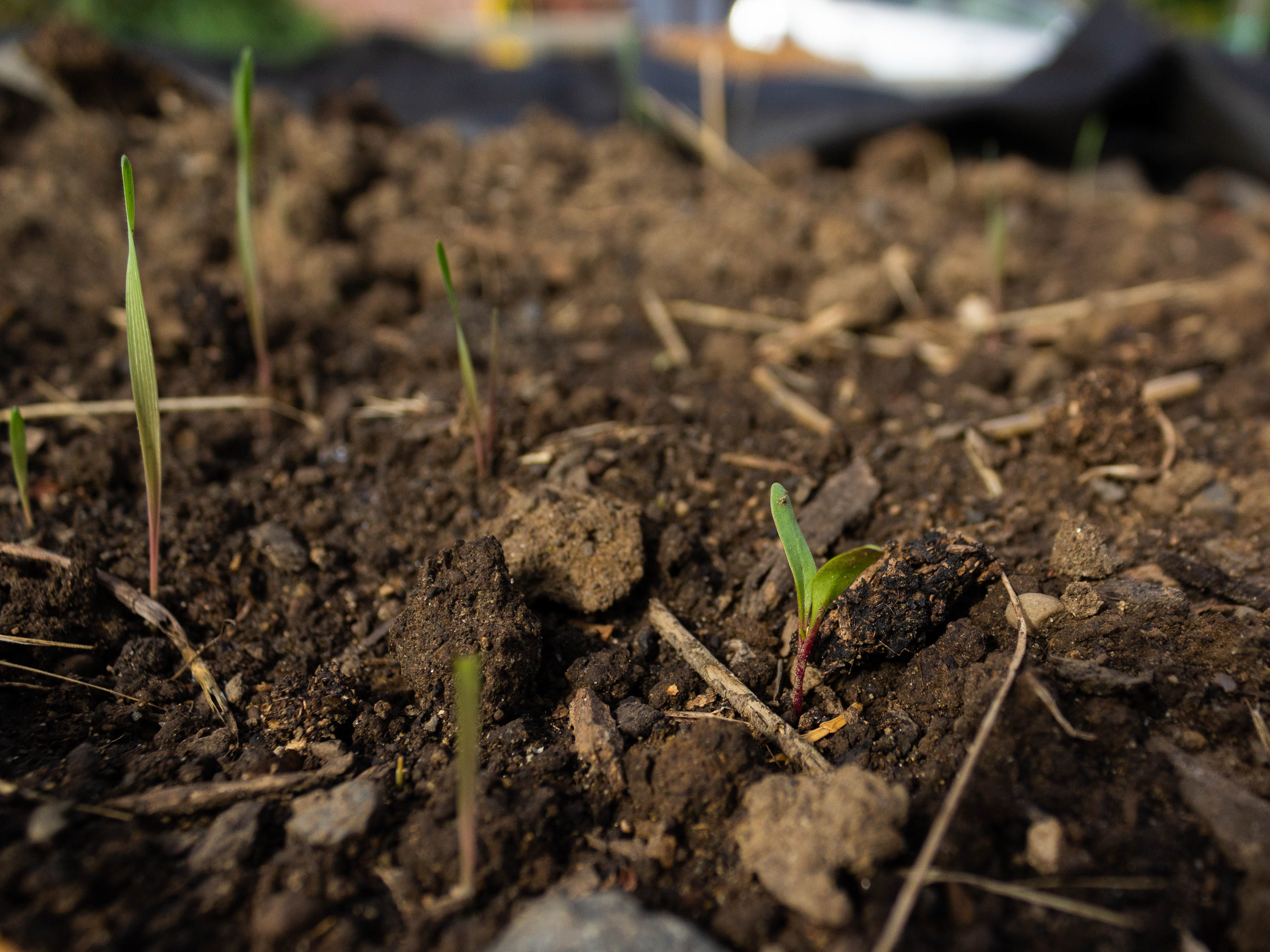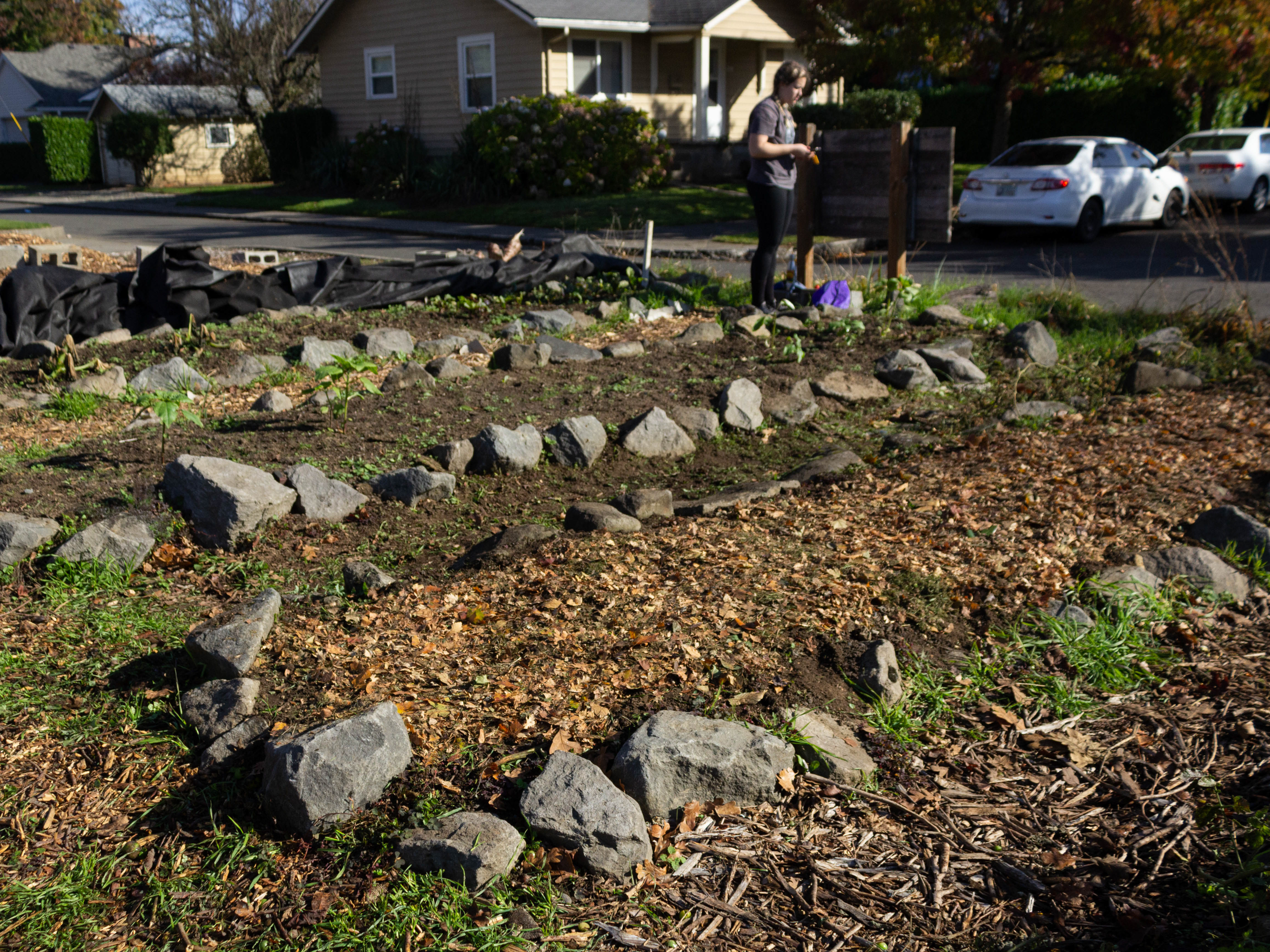A protestor at the 2019 Climate Strike in Portland holds a sign reading "I know you are trying but just not hard enough. Sorry."
Climate change is a global crisis, so when the world “came together” at COP26 in November to figure out a plan to address it, after years of little to no action, the pressure was high. I, like many others, followed along with the two weeks of proceedings with crossed fingers as well as plenty of skepticism, prepared for inevitable disappointment. The general lack of conviction to address climate change throughout much of the Global North and the disappointing track record of previous COP meetings meant low expectations from the get-go. But let’s start at the beginning.
When COP26 began, I only really understood what the purpose of the conference was in broad strokes - leaders of every country were gathering together to discuss how to keep global temperatures from rising past 1.5 degrees Celsius. While pretty elementary, it’s still a very necessary thing to do in order to get on the same page about how we are going to achieve this massive goal.
As the first few days went by, I found myself frustrated that these conversations and talks seemed to be just about ideas - limiting emissions, showy pledges to reach net zero, incorporating economies, what to do about fossil fuels, the importance of reparations for poor countries, reminding everyone what the stakes are, and so on. All important topics, but where were the delegates championing actionable solutions? Where were the leaders making promises to turn to green energy and electrify? Where were the strategy plans?
Then I listened to “The Small Island Nations that Got Big Action on Climate,” an episode from the How to Save a Planet podcast on COP26 that gave me a lot of insight into how this conference actually works. The representatives aren’t necessarily there to present their country’s detailed plans with specific actions about what they’re going to do to achieve the necessary emissions decreases, but they’re drawing up a legal document about addressing climate change where everyone is in agreement with what is stated. This is key because the document only works if all of the countries accept it. Things that aren’t agreed on may get taken out entirely, so to prevent this, more aggressive language gets softened until the terms are acceptable to all.
In every context from casual conversation to news headlines to government documents, language matters and wording is important. In this particular context, it’s all the more literal. This was the first time in 20 years the words “fossil fuels” were acknowledged and appeared in a COP document. Delegates argued between “phasing out” and “phasing down” coal usage, a conflict that I’ll return to in a bit. Certain phrases are clearly more decisive about addressing climate change, while others are more ambiguous and leave room for interpretation.
As someone not inclined towards legalese and also an advocate for more aggressive climate action, these negotiations sound incredibly frustrating and tedious, so I am incredibly grateful for the people who do this for a living. Someone has to, clearly, if this is how we are making progress on climate at all.
As much as I'd enjoy picking over all the details about COP26, there are people who have already done that. Grist, The Washington Post, The Guardian, and CNN all have good, in-depth coverage of the conference. A more recent episode from “How to Save a Planet,” “We Go Inside the COP26 Climate Talks,” also provides an excellent breakdown of what happened at COP26 and where it leaves us.
One group of people that didn’t get as much of a spotlight throughout the conference were the youth activists, many of whom were there as observers. I followed COP26 through their eyes via social media. It was exciting to see them meeting other activists in person, participating in panels, and making speeches to advocate for climate justice, more inclusion, and more aggressive action, and somehow still find space for joy. Of course, there was also the huge march that drew 100,000 people into the streets of Glasgow accompanied by solidarity protests around the world.
Youth activists also didn’t shy away from talking about the not-great experiences in Glasgow. Popular media covered lack of accessibility and the horrible traffic that descended on Glasgow. But youth activists used their social media pages to reveal issues with transparency and inclusion at the conference. For example, it became widely known that the fossil fuel delegation was the largest group present at COP26. It really highlights who gets to have a voice in these conversations.
A protester at the 2019 Portland Climate Strike pushes through the crowd.
As far as the results of the conference itself… There’s no simple answer to whether or not COP26 “succeeded”. By the end, an agreement was reached. The Glasgow Climate Pact is a 10-page document covering science and urgency, adaptation, finance, mitigation, loss and damage, and collaboration, among other things. Check out the Washington Post’s annotated version of the pact if you want to learn more about what it says. And because we need to celebrate wins when they happen, the fact an agreement was reached and signed by almost 200 countries at all is a win.
However, there are some major caveats to the statement I just made. For one, this agreement sets us on a path towards 2.5 degrees Celsius of warming, very much not the 1.5 degrees that was stressed over and over throughout the conference and not even the 2 degrees goal from the 2015 Paris Accords. So in that regard, COP26 failed to deliver.
Second, at the very end of the conference, there was an appalling “compromise” that was forced upon the delegates at the very last minute in a very clear demonstration of coercion. As the conference was winding down, it looked like the agreement would make “phasing out” coal a goal, among other things. But just as delegates were getting ready to sign, India and China swooped in and announced one last change - the wording around coal usage would go from “phasing out” to “phasing down.” And even though this may not seem like a big deal, it is.
“Phasing down” the usage of coal, the dirtiest fossil fuel, is such a nebulous idea. There’s no deadline involved, there’s no numbers, no possible pledge to hold someone accountable because it could just be interpreted as “use less” with no clarification on how much less. Like I said earlier, language matters. Without strong language to keep pushing for more aggressive action, we’re falling behind in a race we’re already losing; our baseline is barely a bare minimum of what’s needed.
This loss in the pact takes away one of the few decisive points in an already limited agreement. Smaller countries who showed up hoping for more overall were further disappointed and rightfully upset at this turn. They could have refused the weaker language but then would have ended up with no deal at all. For those who wanted more aggressive action, it came down to choosing the lesser of two evils, and moving on. It’s a compromise for the worst.
A protestor at the 2019 Portland Climate Strike holds a sign reading "Planet over profit!"
It’s heartbreaking to hear that people are suffering in ways that could have been avoided if action had been taken sooner or aid had been provided when requested. It adds to a feeling of helpless complicitness that I feel, just a small cog in the wheel of a huge machine, but I still belong to it and can’t deny that my comfort comes at the expense of many others and that is a very tough thing to wrestle with.
Sometimes it just seems like some big unfair game of chess. Due to economics or population size or whatever other factors, power rests in the hands of a few countries. And it’s not just their decision to employ their power in this way, but that they are also affecting the lives of millions of others outside of their country. The smaller countries that are facing the brunt of climate change’s effects are just pawns, at the mercy of the whims of the power players. Even their collective power isn’t always enough to sway a favorable response from the giants like the U.S. and India and China, clearly.
I know that it’s not as black and white as that. There’re geopolitics and history and economies to consider. There’s the fact that India and China and other developing countries have legitimate reasons for needing to maintain their dependence on coal. But the way this decision happened, a last-minute change forced onto those who are both already helpless and those who want more action, feels unjust. And the whole point of this conference is to start coming together to right wrongs, not create more animosity and slow down.
I was so relieved to see other representatives angrily speak out at that announcement, making it clear they were only accepting this new change because some form of agreement is better than no agreement. Hearing the president of the conference near tears trying to close out this meeting, apologizing for how it turned out makes me emotional.
A sign reads "People of the world are screaming about climate change, world leaders are not listening!" at the 2019 Climate Strike in Portland.
I’m not sure what’s happened in other countries post-COP26. I don’t know which ones returned from Glasgow and sat down to start drafting policy and outlining plans for the next global meeting in 2022 to reassess NDCs and which ones have already pushed climate back down to the bottom of the agenda. But here in the U.S. I know of a couple of things that are going on.
President Biden signed a bipartisan $1.2 trillion infrastructure bill. While a majority of those funds will go to “traditional” infrastructure projects like roads and bridges, there’s a significant amount of money that is also for various climate measures, from updating the electrical grid and improving flood control to research for carbon-capture. It’s a really great start and there is a lot to look forward to with this package. But when it comes to policy, the really big deal is the Build Back Better Act.
The Build Back Better Act is a $2 trillion spending bill that addresses all kinds of domestic policy, overhauling education, immigration, healthcare, housing, and, of course, climate policy. $555 billion is going towards clean energy and climate resilience measures as well as tax incentives for green infrastructure and technology. There’s so much this package can do, and it could jumpstart a lot of reform in U.S. policy generally, not just climate. However, that’s all contingent on the bill passing the Senate first, where it might see some changes, if it passes at all. With 2022 midterm elections around the corner, it’s kind of now or never for this bill.
At COP26, Biden talked about the Build Back Better framework and how he hopes that it will demonstrate that the U.S. can be a leader in climate action. Only time will tell if we can actually follow through on that claim.
Which brings me back to how I started this whole post. It’s disheartening to think about our fight for climate action, trying to reconcile where we need to or should be in terms of attitude and action on climate change versus where we are. There are some who think the Glasgow Climate Pact is too aggressive, while there are those who would argue it’s not aggressive enough.
I think that at the core of what bothers me the most in how this turned out was the clear demonstration that we’re not on the same page. There are people and forces and industries and countries that are reluctant to act and make sacrifices for a better future for all. And honestly, it’s not even about some nebulous future anymore, it’s about right here, right now because the effects of the changing climate are already here and taking lives. The greed and selfishness in the face of undeniable evidence of situations around the world getting progressively worse are unspeakably infuriating.
The real action isn’t going to happen on the global scale anymore. Like they said in the podcast, “the real power of these meetings is that they create these targets for civil society to rally around and push for, but then ultimately the real game is back home, internally, inside countries holding our own governments accountable.” To be frank, COP26 didn’t exactly inspire a ton of confidence and this “global agreement” isn’t enough. While, yes, systemic change is what is ultimately needed if we are to decarbonize and limit further global warming, those in charge of making that happen have shown once again they are reluctant to do so.
Right now the drive to take action on climate change rests in the hands of the people. Now more than ever, the voices of people matter. It is people speaking up one by one, and then together, that will get things done.









